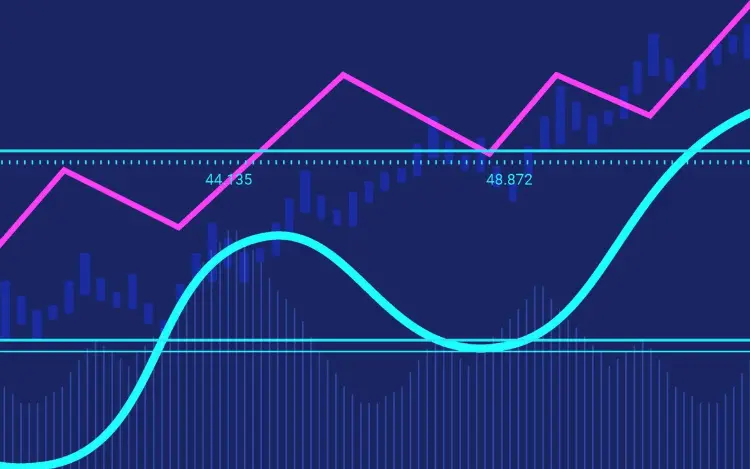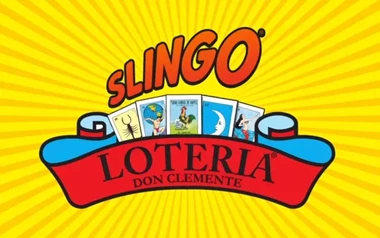In the dazzling world of online slots, appearances can be deceiving. A game might boast thrilling graphics, lively sound effects, and a theme to suit your every whim, but beneath the surface lies a crucial mechanic that affects your entire playing experience: volatility. Often overlooked by casual players, slot game volatility—also known as variance—is the secret ingredient that determines how a slot pays out over time.
If you've ever wondered why some slots offer small, frequent wins while others seem to bide their time before delivering a thrilling payout, the answer lies in volatility. Understanding it isn’t just for seasoned pros—it’s the difference between choosing a game that suits your bankroll and expectations, or one that burns through your funds faster than you can say “bonus round.”
In this guide, we’ll break down what volatility means, how to assess it, and what signs to look for before you hit ‘spin.’ Whether you’re chasing long-shot jackpots or prefer low-risk, leisurely gameplay, learning to read volatility helps you play smarter. And with so many options available on today’s leading slot sites, knowing how to spot volatility is your competitive edge.
Here's our recommended online slot sites in the UK.
What Is Slot Game Volatility?
Volatility refers to the risk level and payout pattern of a slot game. A low volatility slot delivers smaller wins more often, providing steady, slow-burning excitement. A high volatility slot, on the other hand, offers less frequent wins—but when they do land, they tend to be much larger and more dramatic.
Medium volatility slots sit in the middle, offering a balance of both. These are particularly popular among players who want some suspense without feeling like they’re gambling in the dark.
It’s important to note that volatility is not the same as Return to Player (RTP). While RTP reflects the theoretical long-term payout percentage—say, 96% over a vast number of spins—volatility defines the distribution of those payouts. In short, RTP tells you how much; volatility tells you how often and how big.
So, before playing a new slot, understanding its volatility can help you manage expectations, plan your bankroll, and enjoy a more tailored gambling experience.

Why Volatility Matters to Every Player
Why Volatility Matters to Every Player
Whether you're a cautious player or a thrill-seeker, volatility influences how you experience a game. Low volatility slots are perfect for those looking to extend their gameplay, enjoy steady action, and minimise risk. These games are ideal for casual players or those with smaller bankrolls.
High volatility slots, meanwhile, are suited to players who can weather dry spells and are chasing the adrenaline of a potential big win. They’re less about consistency and more about the big moment. For players who enjoy a calculated risk or are working through bonus requirements, these games can be particularly rewarding—but also frustrating if luck doesn’t swing your way.
Medium volatility games offer a more measured experience. They’re suitable for players who don’t want to go too extreme in either direction and still crave a mix of frequent enough wins and satisfying payout sizes.
Knowing which type of player you are—and choosing a slot to match—is a smart way to enhance your play at your preferred slot sites.
How to Identify Volatility in a Slot Game
Unlike RTP, volatility isn't always explicitly stated by the game provider, but there are several clever ways to estimate it before you commit your cash.
Start by checking the official game information page. Many developers now include volatility levels as part of their slot summaries, often labelling them as “Low,” “Medium,” or “High.” If that’s not available, look at the paytable. Games that offer high payouts for rare symbol combinations or massive multipliers in bonus rounds usually lean toward high volatility.
Next, examine the maximum win potential. A slot advertising a win of 10,000x or more is almost certainly high volatility. Such prizes require infrequent but sizable wins—something you won’t find in a game built for steady payouts.
Also consider the frequency and complexity of bonus features. High volatility games often dangle lucrative free spins, cascading reels, or win multipliers—but these features might take time (and spins) to unlock. If the base game pays out modestly and relies heavily on the bonus round for big wins, that’s another sign of a high volatility experience.
Finally, don’t underestimate user reviews and expert ratings. Many professional reviewers on slot sites play-test games specifically to assess volatility and often provide summaries based on hundreds of simulated spins. These impressions can give you a clearer picture of what to expect.

Using Demo Mode to Test Volatility
Using Demo Mode to Test Volatility
If you're unsure about a game’s volatility, one of the safest and most informative steps you can take is to try it in demo mode. Almost all reputable slot sites offer demo versions, allowing you to test gameplay using virtual credits.
By spinning 100–200 times, you can get a rough feel for the game's rhythm. Are wins coming frequently but modestly? You’re probably in low volatility territory. Are long dry spells followed by the occasional, eye-watering payout? That’s the hallmark of high volatility.
Demo play isn’t foolproof—after all, randomness means you could experience an uncharacteristic streak—but it offers a useful approximation. It’s especially helpful for assessing whether a game’s features and pacing suit your appetite for risk and reward.
Matching Volatility to Your Bankroll
Analysing volatility is also essential for bankroll management. Low volatility slots require smaller session budgets, as you’re likely to see regular returns that keep your balance alive. High volatility slots, on the other hand, demand larger bankrolls or smaller bets per spin to ride out the inevitable dry spells.
For instance, placing £2 spins on a high volatility slot with a £50 budget might lead to a swift exit if luck doesn’t land early. In contrast, that same £50 could last for an hour or more on a low volatility game with consistent mini-payouts—even if they’re not huge.
Understanding this connection allows you to make more strategic decisions about when, where, and how to play—avoiding disappointment and maximising entertainment value.
Volatility and Bonus Wagering Requirements
Volatility also plays a key role when meeting wagering requirements on bonus funds. High volatility slots can either burn through your bonus balance quickly or skyrocket it with a big hit. Low volatility slots may help you grind through the requirement steadily, reducing the risk of an early bust.
Medium volatility games are often considered the sweet spot for wagering—offering enough win potential to build momentum without risking the immediate evaporation of your bonus.
Many slot sites even label “recommended” games for bonus play, often favouring those with medium volatility. Choosing wisely based on your bonus goals can drastically improve your odds of converting promotional credit into withdrawable cash.
Spin Wisely: A Concluding Word
Slot games might look like pure fun and flashing lights on the surface, but their mechanics run deep—and volatility is one of the most influential factors in shaping your experience. Whether you’re in it for long-haul entertainment, strategic wagering, or the pulse-pounding thrill of a rare, colossal win, understanding volatility is key to aligning your play with your expectations.
It allows you to avoid mismatches between playstyle and payout, better manage your bankroll, and get the most value—emotional and financial—from each session. Instead of blindly spinning and hoping for the best, analysing volatility gives you the insight to choose your battles wisely.
And with hundreds of options available across today’s top slot sites, there’s no excuse not to play informed. Pick your volatility, pace your play, and enjoy the ride with clarity, confidence, and just the right dose of risk.
For more insights into slot strategies, game mechanics, and how to make the most of your online play, Gambling Zone is the place to go.










